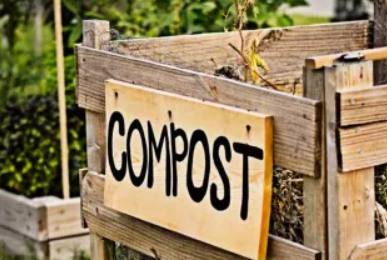Plastic Pollution: The Abuse of Loopholes and Lack of Accountability
The use of black plastic bags for packaging purchases and products has been banned. Yet, supermarkets, bakeries, and other businesses quickly took advantage by creating ochre-colored plastic bags branded with their logos, turning this law on its head with remarkable audacity. These bags, just as non-biodegradable and harmful as the banned ones, now provide an additional revenue stream while skirting regulations.
To charge more for products like eggs, poultry, and meats, retailers wrap them in extra plastic and use fancy trays to give a « premium » look, which helps them bypass price controls established by authorities. Yet, there is no response from regulatory bodies.
In one area of the beach in Djerba, an entire section has been turned into a dumping ground. It’s shocking that local authorities — in a tourism-dependent region — haven’t intervened to stop these criminal acts. How is it possible that not a single resident has seen this harm to their shared resources and raised the alarm?
In Switzerland, they say the “best police officer is the citizen.” There, people play an active role in safeguarding the discipline needed for a peaceful and healthy life.
On beaches during summer, trash is left on the sand even when bins are close by, with no enforcement against these disturbing violations.
Meanwhile, in France, Germany, and the Netherlands, people bring reusable containers — glass jars with deposits, cardboard boxes, or jute bags — for shopping, reducing plastic use and helping to lighten the burden on our planet.
According to a recent study by French researcher Fabienne Lagarde, by 2024, plastic particles have been found in all parts of the human body, including vital organs. This problem will worsen for children born after 2040.
The medical journal New England Journal of Medicine reveals that the buildup of plastic particles in the human body is linked to cardiovascular diseases and strokes, now alarmingly common.
Tunisia, grappling with serious environmental concerns due to plastic pollution, is witnessing firsthand the damage it causes. Single-use plastic bags are a particular threat, degrading into microplastics that enter the food chain, harming marine biodiversity and livestock, and ultimately affecting human health.
The economic impact of plastic pollution is equally alarming. According to a study by the World Wildlife Fund, “Tunisia’s blue economy loses over $20 million annually due to plastic pollution.” Beaches once prized for their natural beauty are now littered with plastic waste, deterring tourism and harming the local economy. Several beaches have been declared unfit for swimming — a stark indicator of the crisis.
In response, the Tunisian government introduced a moratorium on single-use plastics (SUP), aiming to reduce their environmental and public health impacts. This initiative is part of a broader effort toward a circular economy and anti-pollution measures.
Decree No. 32 of January 16, 2020, marked a turning point for plastic waste management in Tunisia, banning “the production, import, and distribution of single-use plastic bags, with exceptions for biodegradable and reusable alternatives.”
Relentless Multinationals
Despite these efforts, ruthless multinationals fiercely oppose plastic restrictions, flooding media with messages that promote their packaging as the best option.
Yet, evidence shows that glass remains the best material for preserving freshness and flavor. Countries that produce plastic packaging are returning to glass due to the undeniable threat. While transitioning back to glass requires investment in recycling, sorting, and washing infrastructure, what alternative exists to protect the environment and public health?
2022 was declared the International Year of Glass. Inert, recyclable, and proven, glass containers should be prioritized for collection. However, only a few timid, short-lived attempts have been made to promote this. Key decision-makers remain unconvinced.
Revisiting Tunisia’s plastic-free future policies feels futile. Laws, regulations, decrees, and orders are meaningless if impunity persists and citizens remain uninformed, unaware that their health and that of future generations is at risk.
Intermittent, short-lived campaigns fall short. Plastic bottles, convenient packaging, and quick-to-use trays have become ingrained habits. Change demands sustained education, funding, continuity, strategic communication, and resilience.
In the meantime, citizens entrapped by influencers and advertisers’ appeals will see their doctors more often, their lives overshadowed by illnesses, and regret that the lives they lead no longer feel worth living.
Source: la presse



